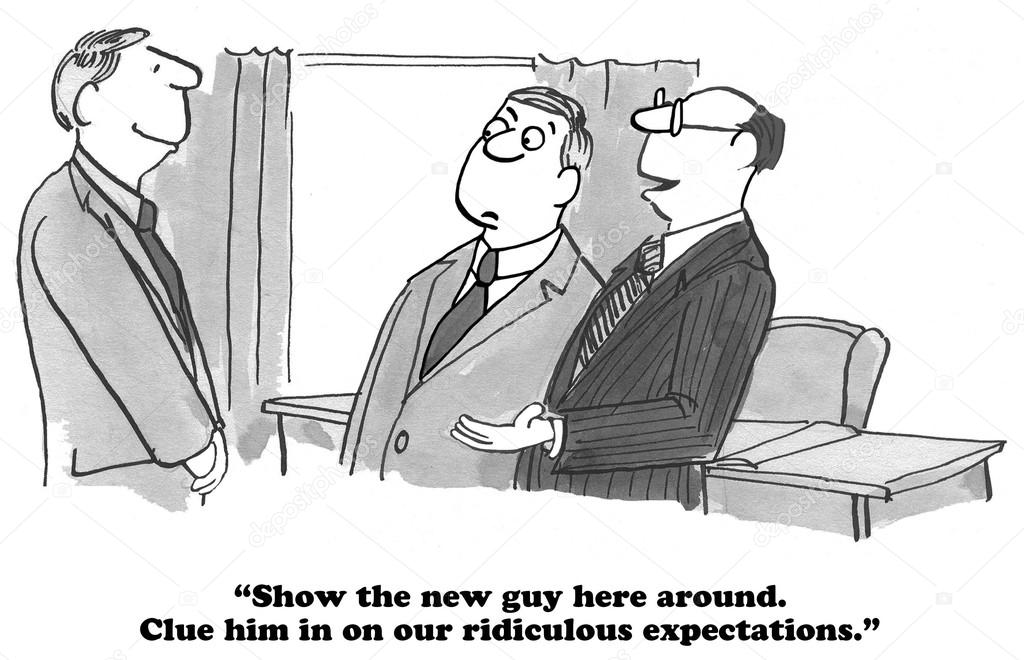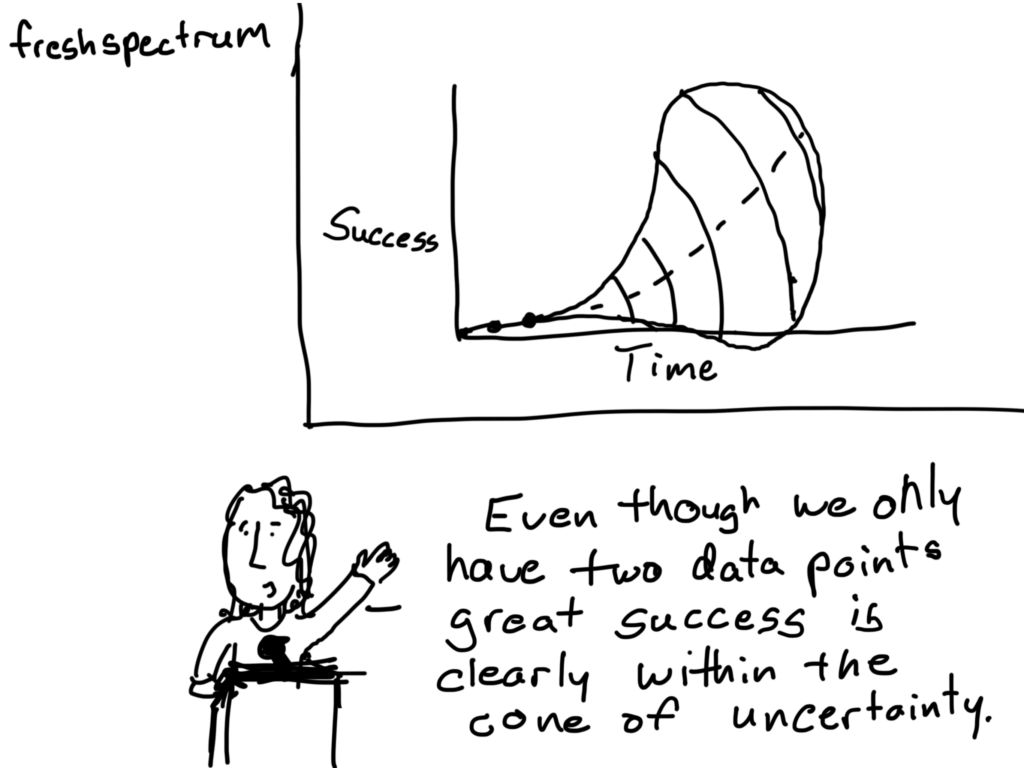
Category Archives: Expectations
Cartoon – Tyranny of Expectations
Thought of the Day: On Creating Excellence
Payers discuss Medicare Advantage (MA) misses at JP Morgan healthcare conference
https://mailchi.mp/92a96980a92f/the-weekly-gist-january-14-2022?e=d1e747d2d8

Large insurers Humana and Cigna, along with “insurtech” startups Bright Health and Alignment Healthcare, all lowered expectations for their MA membership growth after missing 2022 enrollment targets. The companies blamed fierce competition for the nation’s estimated 29.5M MA lives, and highlighted a focus on diversifying revenue through other business arms like healthcare delivery and service sales.
The Gist: Insurers’ missed expectations are leading some to question whether the MA market is beginning to weaken, but these concerns are overblown, with last fall’s enrollment affected by the pandemic, which hindered brokers’ ability to reach seniors.
Some MA-focused startups are finding challenges in their attempts to scale, and their stock prices will continue to retreat from the lofty valuations that drove their public offerings.
Insurers still have plenty of running room to grow their MA books of business, but will face increasing scrutiny of their ability to manage patients and control costs for the aging population.
Cartoon – Do you dwell on…

Cartoon – Setting Realistic Expectation

Cartoon – Cluing in the New Guy

Business forecasters see inflation heating up to 5.1%

Dive Brief:
- Inflation as measured by the consumer price index will surge 5.1% year-over-year during the fourth quarter, forecasters for the National Association for Business Economics (NABE) said, raising their estimate in May for a 2.8% year-over-year increase in prices. The forecasters anticipate inflation will ease to 2.4% year-over-year during the fourth quarter of 2022, according to a survey.
- “Inflation expectations have moved up significantly from those in the May 2021 survey,” according to Holly Wade, survey chair and executive director for the research center at the National Federation of Independent Business. “But panelists anticipate inflation will ease in 2022.”
- The NABE panel reduced its estimate for growth in gross domestic product (GDP) this year to 5.6% from 6.7% in May, citing the coronavirus delta variant as the biggest risk to the expansion.
Dive Insight:
NABE expectations that inflation will cool next year align with the view of Federal Reserve Chair Jerome Powell and Treasury Secretary Janet Yellen. Both policy-makers have staked record stimulus in part on the premise that the fastest price gains in decades will slow as pandemic-induced kinks in supply chains even out.
The Fed’s preferred inflation measure — the core personal consumption expenditures price index — rose 3.6% in July compared with a year earlier, well above the central bank’s 2% target.
In an estimate released after a two-day meeting on Wednesday, Fed officials forecast that so-called core inflation will rise 2.3% next year, slightly above the 2.2% estimate by the NABE panel.
Confident that inflation will ease, Fed policy-makers indicated after their meeting that they may begin to cut $120 billion in monthly purchases of Treasury and mortgage bonds as early as their next scheduled gathering in November. Powell said that the Fed will gradually taper and may conclude bond buying “around the middle of next year.”
Half of the 18 participants in the Fed’s policy-making committee expect to raise the benchmark interest rate from a record low by the end of 2022.
“I expect inflation to decelerate,” Fed Governor Lael Brainard said Monday in a speech to NABE. “But with delta disrupting the rotation from goods to services and prolonging supply bottlenecks, it is uncertain just how fast and how much inflation will decelerate over the remainder of the year and into next year.”
With the delta variant disrupting demand and supply, the employment report for September due out on Oct. 8 “may be weaker and less informative of underlying economic momentum than I had hoped,” she said.
More than half (58%) of the NABE forecasters see downside risks to economic growth for the remainder of 2021, while 16% “expect the balance to be to the upside — a complete reversal from the May survey results,” Wade said.
Sixty-three percent of panelists identify the delta variant as the leading risk to growth, while 5% of respondents said fiscal policy inaction or gridlock as their greatest growth concern, NABE said. Two-thirds (67%) of survey respondents predict that nonfarm payrolls will return to pre-pandemic levels by the end of 2022.
Powell and Yellen will have an opportunity to update their views on inflation and the economy, and the outlook for record monetary and fiscal stimulus, in testimony scheduled for Tuesday before the Senate Banking Committee.
The NABE panel of 47 forecasters spans a range of organizations, including economists from Ford, Grant Thornton, Moody’s Analytics, the Conference of State Bank Supervisors, Nationwide Insurance, Morgan Stanley, the National Association of Homebuilders, Visa and Wells Fargo.
Cartoon – The Cone of Uncertainty

Cartoon – Another Year of Uncertainty?




